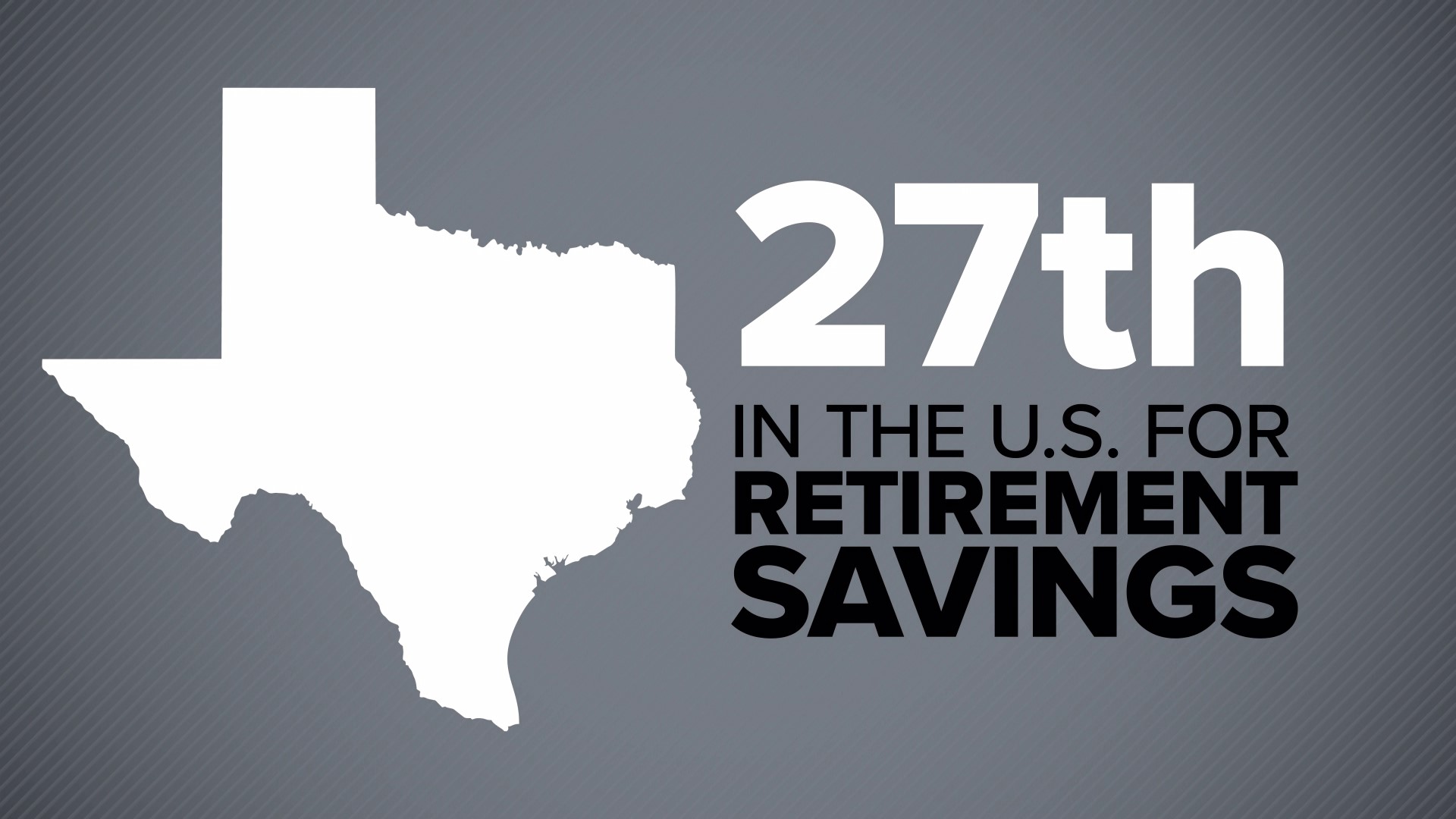TEXAS, USA — Workers spend decades running toward that retirement finish line. But does it seem like it’s getting further away?
Or when you suddenly get to it, you fully realize the finish line is actually a new starting line for life after full-time work…and you wonder if you’ve got enough money saved to complete that new leg.
Bank of America recently found that, on average, we plan to keep working until we’re 68 or 69 years old. Among Millennials and Gen Z, only 8% plan to retire by 67. And 14% of people aged 45 to 54 plan to retire later now than they thought they would just back in 2019.
So how are you doing? A big financial firm found last year that Texas comes in 27th place in the U.S. for retirement savings, with an average retirement piggy bank of $434,328.
A retirement experiment
As you get closer to retiring, you should be figuring out what your bills and your monthly income are going to look like.
Financial expert and author of Good Money Revolution, Derrick Kinney, says you might want to start actually living on those inflows and outflows before you stop working, “Here is what I have known…and has been proved in 25 years as an advisor: Live on a practice retirement budget.”
Kinney says maybe about six months out from retirement you should try living on the exact amount of money you think you’ll need each month after you retire.
He says it may benefit you even more if you can start living on your retirement budget even before that, “If you want to test it five years early…or a year early…here’s what we find: That many people who test this realize they may be able to live on less than they think. And most people could then retire earlier. So, by not doing this, you might be costing yourself years of your ideal retirement.”
Many of us aren’t ready for retirement (financially)
Many of us aren’t ready for retirement. That’s why in the months ahead, you will likely hear much more about the Secure Act 2.0. The Senate is working on this now, and will likely need to reconcile it with a version that already passed the House of Representatives in a huge bipartisan way.
Among other things, the legislation could allow part time workers into 401(k) plans earlier. It could allow employers to make 401(k) matching contributions to you even if you’re not contributing, but you are making payments on student loans.
It could make many more employers automatically enroll workers into a 401(k) plan and start taking out contributions for them. It could make it more advantageous for more small businesses to offer 401(k) plans, and it could allow older workers to make larger catch-up contributions to their 401(k) plans.
The legislation is widely expected to be passed by Congress and sent to President Biden by the end of this year. Updates to come…

